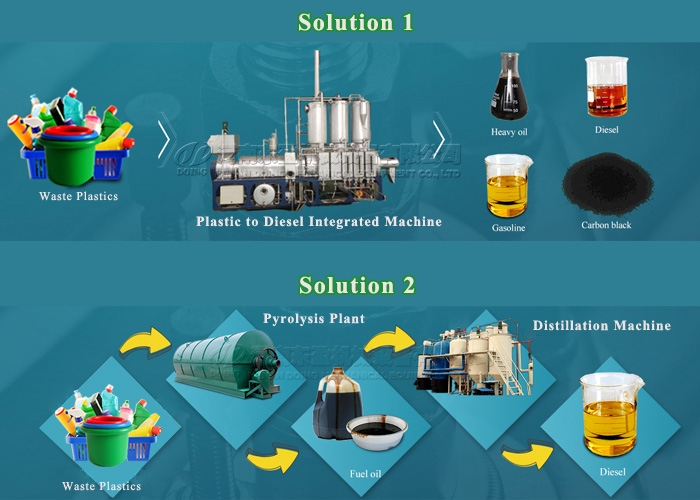
Ram Nagri Welcomes the Establishment of a 20 TPD Plastic-to-Diesel Plant
A plant that converts plastic into diesel establishes itself in Ram Nagri.
In the midst of Ayodhya’s transformative endeavors, including religious tourism and infrastructure developments centered around the grand Ram Temple, a lesser-known yet significant environmental initiative is taking shape in ‘Ram Nagri.’ A pioneering plastic-to-diesel refinery, the first of its kind in north India and Uttar Pradesh, is being set up with the goal of converting all types of plastic waste, both recyclable and non-recyclable, into automotive diesel.
The current daily plastic waste generation in the district stands at 30-35 tonnes, with expectations of a gradual increase, especially with the anticipated rise in tourist footfall following the opening of the Ram Temple. The initial phase of the plant, with a capacity of 20 TPD, aims to address this waste and contribute to environmental sustainability.
In a strategic move, Ayodhya Nagar Nigam has entered into an agreement with a Bengaluru-based company for the establishment of the plastic-to-diesel refinery. The company will construct the mini refinery on a designated piece of land along the Lucknow-Ayodhya road. Simultaneously, the installation of 100 collection centers throughout the district has commenced. These centers will play a crucial role in daily collection efforts, ensuring that plastic waste from across Ayodhya is efficiently gathered.
Highlighting the significance of this environmental initiative, Vishal Singh, Ayodhya Municipal Commissioner, stated, “Ayodhya will be the first in the state to have such a plant for the betterment of the environment and cleanliness.” As the project progresses, there are plans to expand the plant’s capacity to 40 TPD in its second stage, showcasing a commitment to sustainable waste management in the region.
The anticipated expenditure for the initiative is estimated at ₹100 crore.
According to Imran Rizvi, co-promoter and director of MK Aromatics Limited Bangalore, the plastic waste will undergo a transformation process, being converted into crude oil and then refined into diesel. The resulting diesel will be marketed to local farmers and various customers utilizing generators, tractors, pump-sets, heavy machinery, vehicles, earth movers, dumpers, or tippers. Construction is scheduled to commence in April, with the plant expected to be operational within a few months.
MK Aromatics Limited Bangalore is not new to this endeavor, having already successfully operated similar plants in Chennai, Tamil Nadu, and Goa, with the Bengaluru plant currently under construction.
Imran Rizvi highlighted the efficiency of the process, stating, “1000-gram plastic waste will be converted into 800 ml of automotive diesel, which is cheaper for consumers than the diesel from oil companies.”
The initial focus of the plant will be on handling plastic waste from the Ayodhya district, gradually expanding to incorporate all urban local bodies and major panchayats in the Ayodhya division.
Explaining the process, Rizvi noted that plastic waste collected at the center will be baled and sent to the plant’s reactor for processing. The plastic will undergo heating at 350 to 450 degrees Celsius, with a specially developed catalyst facilitating the transformation into hydrocarbon gases stored as condensate or crude oil. Additionally, LPG (liquefied petroleum gas) produced in the process will be utilized as fuel for the reactor, ensuring a pollution-free operation.
To enhance collection efforts, each center will be equipped with approximately five e-rickshaws and around 25 rag-pickers covering their designated territories.
Beyond waste management and environmental care, the project is expected to contribute to employment and revenue generation. Notably, it is anticipated to mitigate the harm caused to stray cattle, often prone to consuming polythene in search of food in streets and garbage dumps.
The company has entered into a Memorandum of Understanding (MoU) with the Government of Uttar Pradesh to establish a total of five plants, including the Ayodhya facility, each boasting a 40 TPD capacity. The other four locations earmarked for these plants are Lucknow, Varanasi, Gorakhpur, and Ghaziabad.